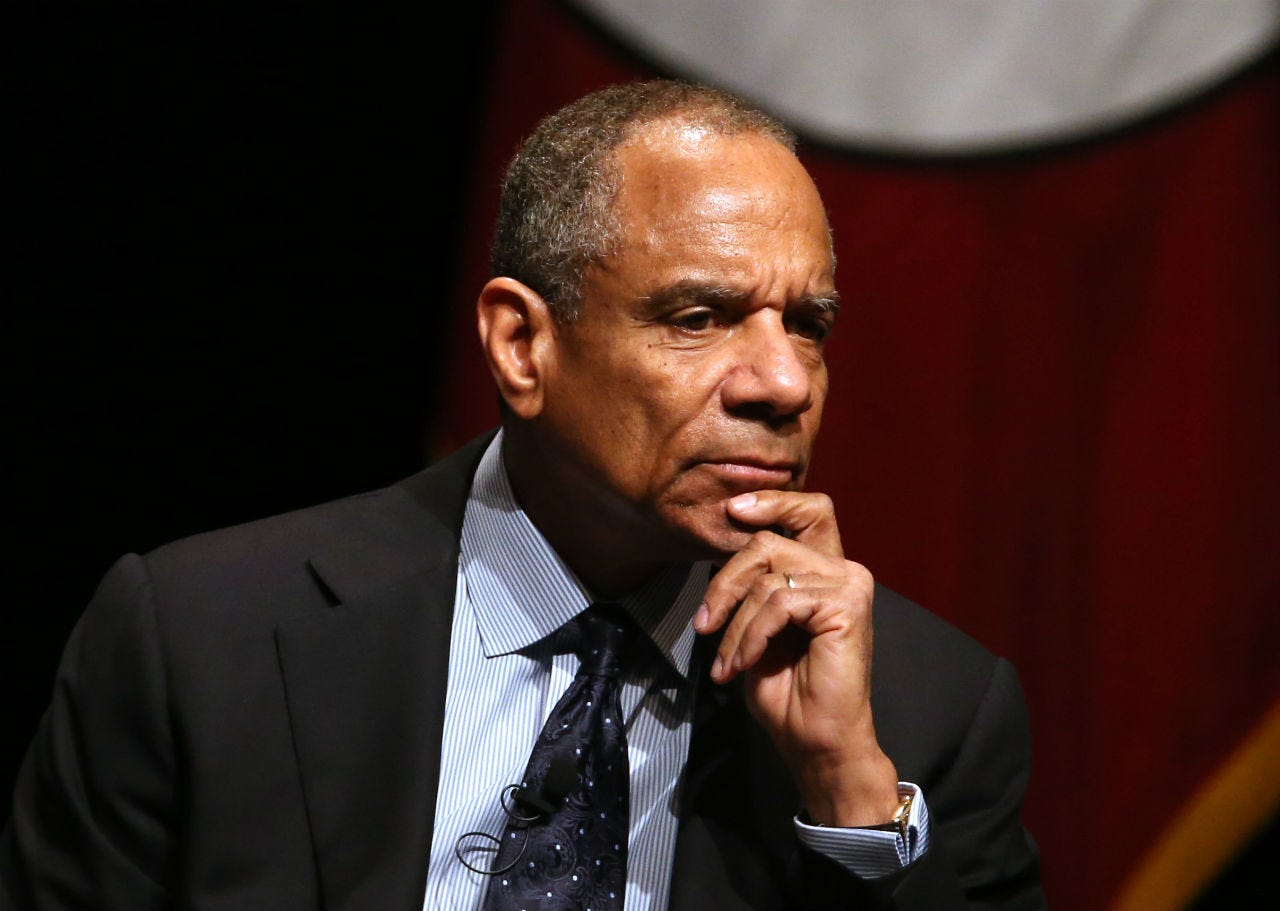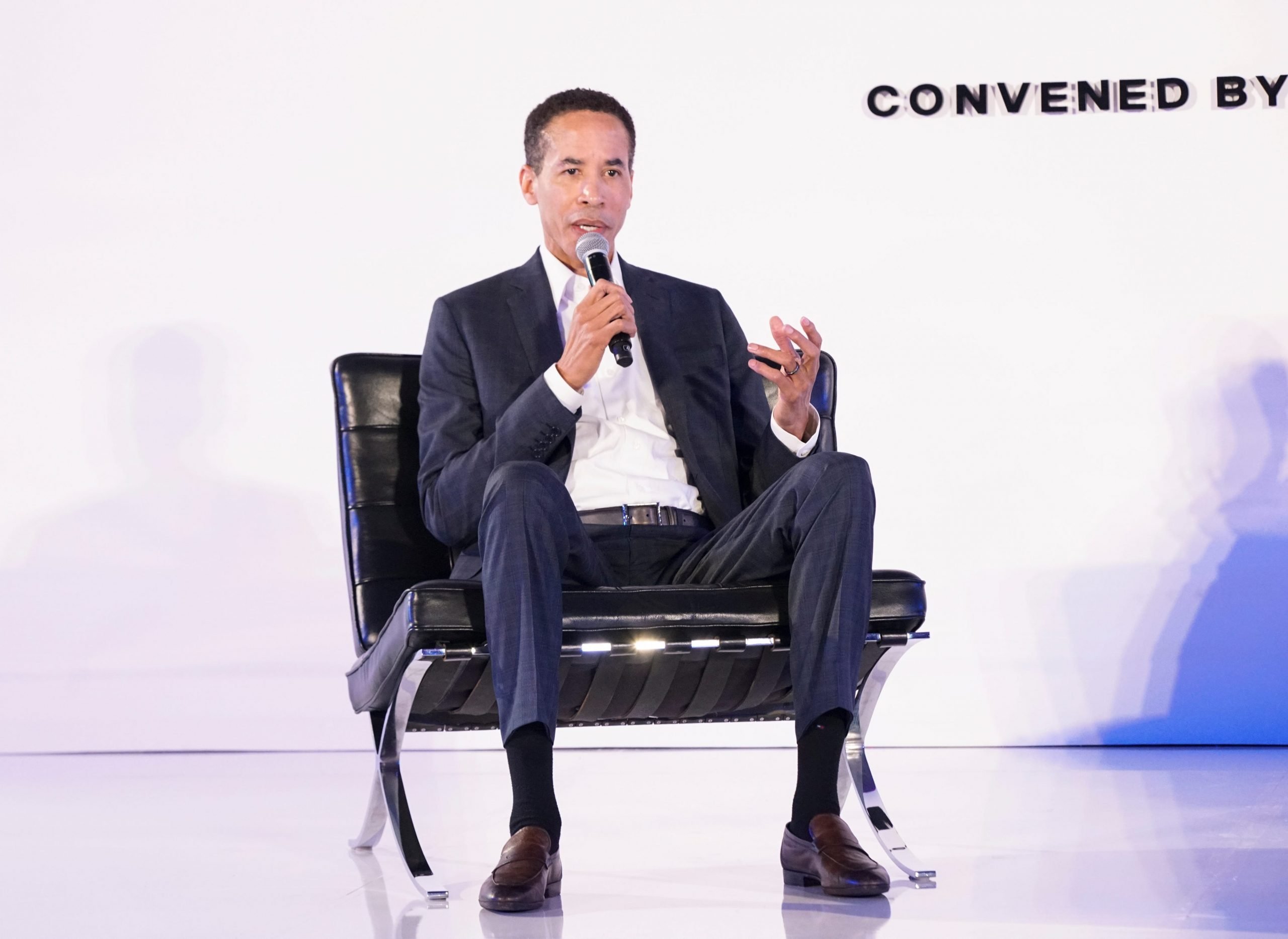
Justin Sullivan / Getty
Justin Sullivan / Getty
- Five Black executives led the effort to get 700 companies to oppose restrictive voter laws.
- Charles Phillips, former CEO of Infor, said they texted and emailed hundreds of companies.
- Over the course of 3 weeks, companies came together to speak out against the Georgia law.
- See more stories on Insider's business page.
Hundreds of companies signed a statement Wednesday that condemned restrictive voting laws, like the one passed in Georgia last month.
The final statement, which appeared in a two-page ad in The New York Times, Wall Street Journal, USA TODAY, and the Washington Post, was the result of a three-week effort from five Black executives: Kenneth Chenault, Kenneth Frazier, William M. Lewis Jr., Clarence Otis Jr., and Charles Phillips.
Phillips told Insider that civil rights groups began reaching out on Sunday, March 28, to discuss issues with the Georgia voting bill, the Election Integrity Act of 2021.
"We decided, based on what we had learned, that we can't let the last 70 years of progress on voters' rights that people fought so hard for go the other direction," he added. "We won't do this often, but for this, it's Constitutional rights, it's democracy."
Within about 48 hours, they contacted dozens of other Black executives about the issue, and "without hesitation, they jumped on board," Phillips said.
On March 31, more than 70 Black business leaders signed a letter urging US companies to publicly oppose new laws by Republicans that they said would restrict the rights of Black voters. The laws made ballot drop boxes permanent, but only at select locations during limited hours, shortened the window for requesting absentee ballots, and banned ballot selfies, among other restrictive measures.
In the following days, American firms such as JPMorgan Chase, Apple, and others began speaking out against the law.
Phillips, the former CEO of software company Infor, told Insider that after the initial letter went out, they began texting, emailing, and calling executives from hundreds of American firms to see if they would sign the statement that would eventually be published as an ad in several newspapers.
They didn't expect they'd have 700 corporations, nonprofits, and law firms sign on, Phillips said.

Getty/ Bennett Raglin
The five Black executives who championed the effort have worked together before, like when they raised millions of dollars for Black students to see "Selma," a movie based on the 1965 voting rights marches, for free.
They've known each other for decades, Phillips said. And each of them is accustomed to being in leadership roles.
Before heading to Wall Street, Phillips was a captain in the U.S. Marine Corps and later served on the Obama Administration's Economic Recovery Board, according to PitchBook.
Chenault, now 69, was one of the first Black Americans to run a Fortune 500 company when he became CEO of American Express - a role he maintained for 17 years, CNBC reported at the time. The Harvard law graduate now sits on the board of a handful of companies, including Warren Buffett's Berkshire Hathaway, according to PitchBook. In an online biography, the former executive said he also co-founded OneTen, which aims to upskill, hire, and advance a million Black Americans into sustainable jobs over the course of 10 years.
Frazier, also a Harvard law graduate, has been in his role as CEO and chairman of the board of pharmaceutical company Merck since 2011.
The 66-year-old executive is a "strong advocate for social justice and economic inclusion," according to his biography on the company's website, and has received multiple awards, such as the Anti-Defamation League Courage Against Hate Award, the NAACP Legal Defense and Educational Fund National Equal Justice Award, and the Forbes Lifetime Achievement Award for Healthcare.
Lewis, 64, is a Harvard business school graduate and now serves as co-chairman and managing director at financial firm Lazard, according to PitchBook. Previously, he also held leadership positions at Morgan Stanley, and in 2002, was ranked by Fortune as the 13th most powerful African American executive in the US, according to "The History Makers." The biography also said he's an "active community and civic leader," chairing the A Better Chance Inc. Foundation and serving as co-chair of the NAACP Legal Defense and Education Foundation.
Otis was at the helm of Darden Restaurants, the owner of Olive Garden and LongHorn Steakhouse, from 2004 to 2014. He now sits on the boards of Verizon and the Travelers Companies.
The 65-year-old graduated as valedictorian of his high school class and later went on to get his law degree from Stanford, according to a biography from "The History Makers," which noted he owns one of the largest privately held African American art collections in the US.
The 700 companies that signed onto the statement included big names like Netflix, United Airlines, American Express, Facebook, and Target.
But not everyone signed. Some, notably Walmart, Delta, Home Depot, JPMorgan, and Coca-Cola, didn't attach their signatures to the ad.
The overall response, Phillips said, has been "positive," with people reaching out to thank them for their effort.
